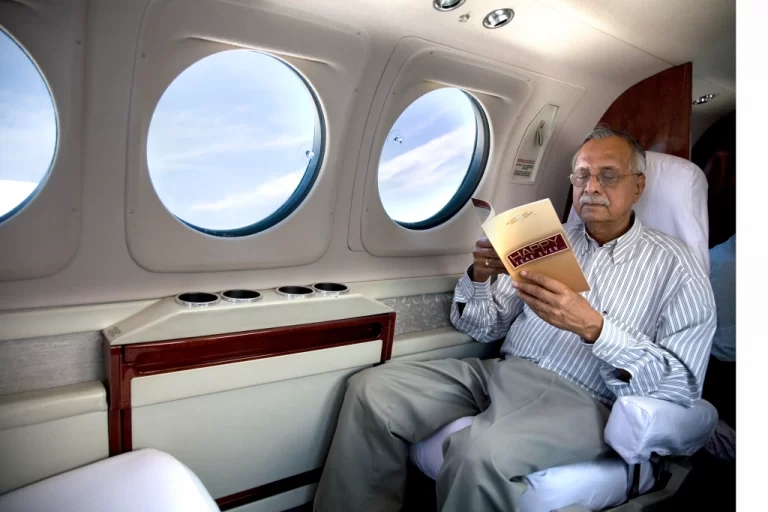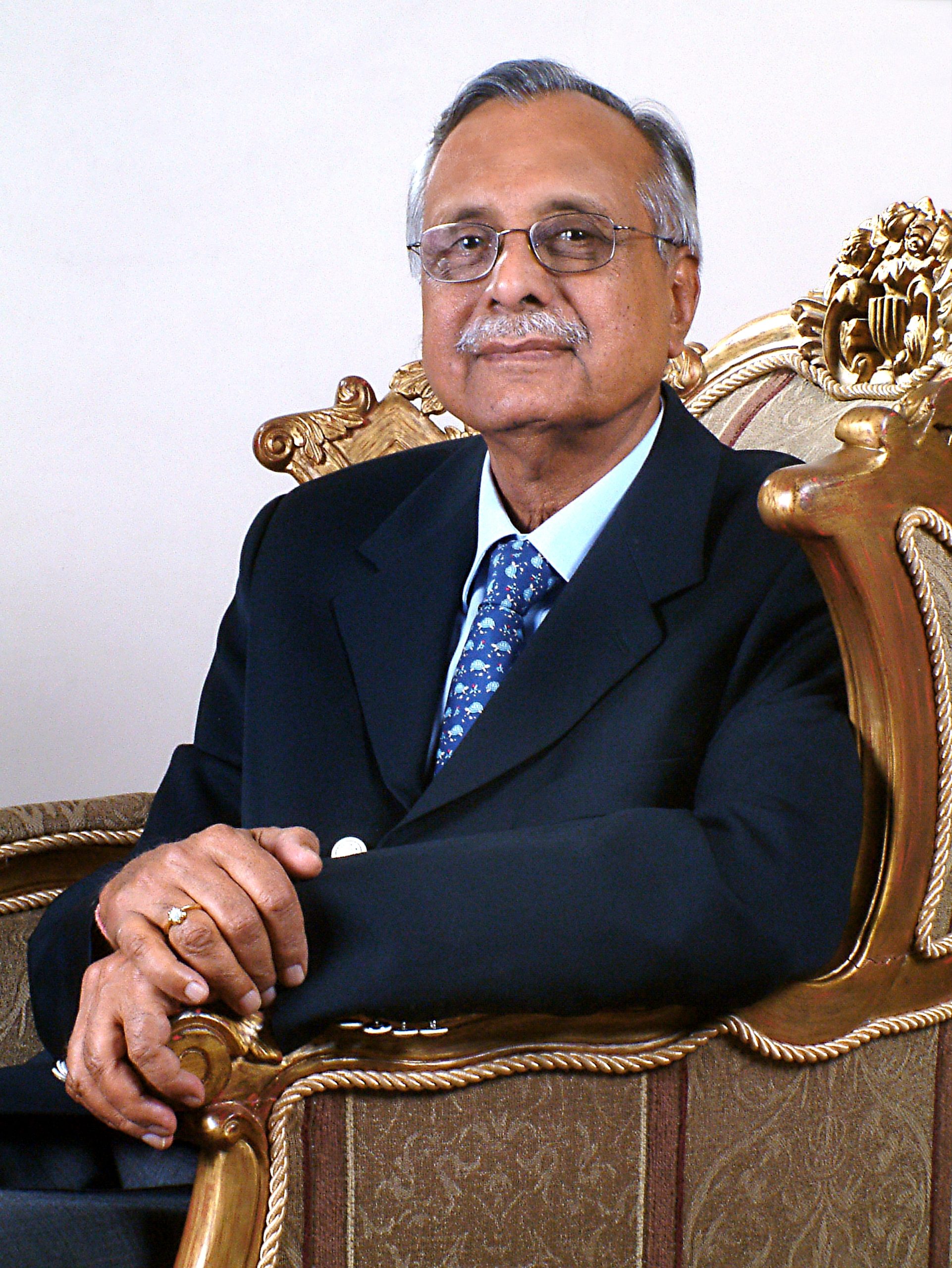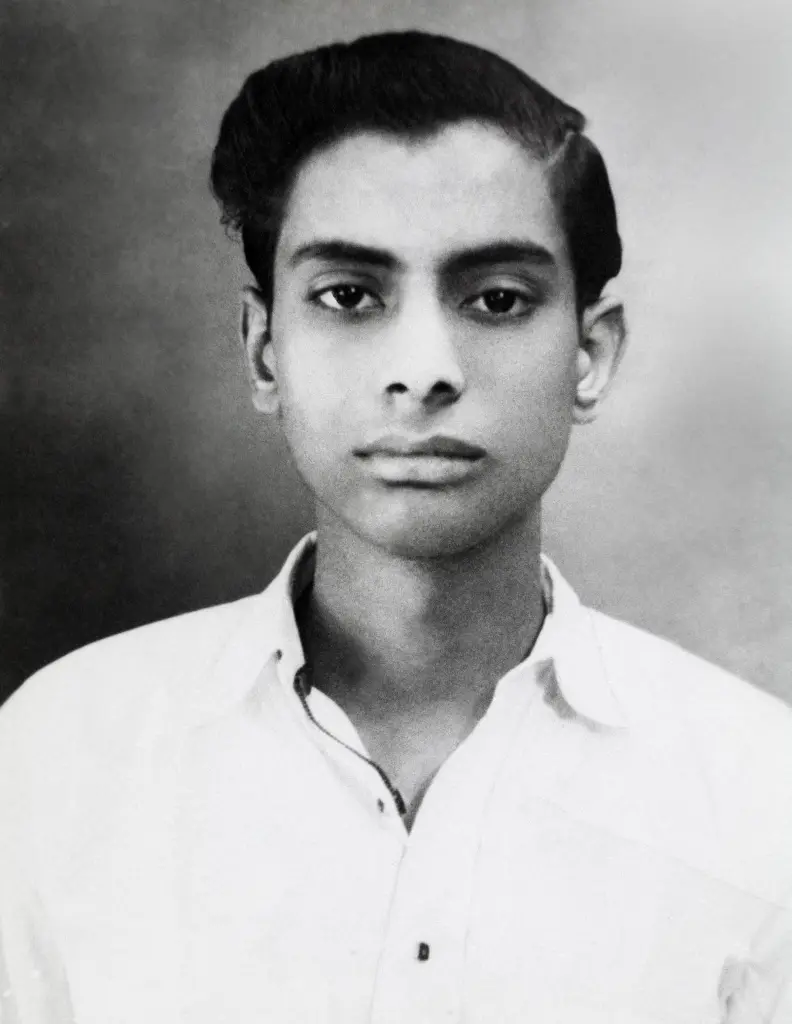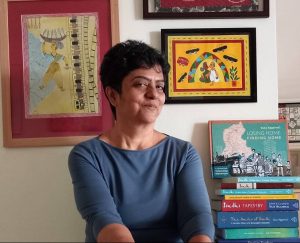
A salute to an extraordinary person on his birth anniversary: Pralhad Parsram Chhabria was born into a wealthy business family of Karachi, on 12 March 1930, and passed away peacefully in Pune in 2016, at 86, after a brief illness. He was widely known to be gentle, dignified and the personification of humility. He was also a man of extraordinary achievement – one who had struggled immensely right through his life.
Saaz Aggarwal
As a child, Pralhad spent happy times in his native town of Shikarpur, the love for which he carried to the end of his days. When his father died, he was only 12 years old. Within a short while, the family lost all its money. He was taken out of school and went to work in what turned out to be a series of menial jobs.
As a helper in a cloth store, he got used to winding up bales of cloth, cleaning the floor and shelves, and – a boy from a family with so much domestic help that he had never even had to dress himself before his father died – washing the shop owner’s lunch utensils.
 As a cleaner in a truck, he sat next to the Pathan driver so that there would be someone watching in case he stole fuel. In those few short weeks, he was able to converse with him comfortably in Pushtu.
As a cleaner in a truck, he sat next to the Pathan driver so that there would be someone watching in case he stole fuel. In those few short weeks, he was able to converse with him comfortably in Pushtu.
After two months working with his brother-in-law in Amritsar, he had picked up Punjabi too. In later years, living in Pune, he invariably chose to address public gatherings in Marathi rather than English or Hindi.
As a helper in a cloth store, he got used to winding up bales of cloth, cleaning the floor and shelves
On his way home to Karachi at the end of his stay in Amritsar, travelling alone by train, the young Pralhad woke in the morning to find that a currency note had been stolen from him. Shocked and upset, he had the courage to approach the railway police at the first halt, the tenacity to insist that the co-passenger he suspected be searched, and the remarkable power of memory and observation to prove that the note found was his: to the astonishment of the police constable, this young child knew the number on the note! PP Chhabria was that rare individual whose education ended when he was 12 years old but had the intelligence to learn every aspect of business on the job, and as he became established in business, he was held in respect for his prowess in finance, sales, human resources, and public relations. Htime, he remained grateful to all those from whom he had learnt these skills; all those who had taken him under their wing to guide and mentor him with patience.
 In 1945, at the age of 15, PP Chhabria came to live with relatives in Pune, working in their home and business, to earn his keep. Two years later, the events following Partition caused his mother and brothers to flee from their home in Sindh and join him in Pune. Like many other displaced families, they started a small business of their own. By now he knew the city well and used this knowledge, bringing electrical goods from Bombay and supplying to local shopkeepers. It was this fledgling business that he grew to the ₹10,000 crore Finolex Group.
In 1945, at the age of 15, PP Chhabria came to live with relatives in Pune, working in their home and business, to earn his keep. Two years later, the events following Partition caused his mother and brothers to flee from their home in Sindh and join him in Pune. Like many other displaced families, they started a small business of their own. By now he knew the city well and used this knowledge, bringing electrical goods from Bombay and supplying to local shopkeepers. It was this fledgling business that he grew to the ₹10,000 crore Finolex Group.
In 1945, at the age of 15, PP Chhabria came to live with relatives in Pune, working in their home and business, to earn his keep
PP Chhabria was a loving family man, devoted to his wife Mohini and their three children, Aruna, Prakash, and Sonali. In August 1981, tragedy struck, and they lost Sonali to leukaemia. PP Chhabria had been a talented singer, excelling in the words and melodies of KL Saigal, Pankaj Mullick, and the other greats of his time ever since he was a young child. After Sonali died, he stopped singing. His guru, Swami Ram Baba was a great source of strength through the difficult times of his life.
In the years to come, as Finolex grew from strength to strength, and PP Chhabria and his family established the Mukul Madhav Foundation and the Hope Foundation and Research Centre, active in the fields of medical assistance, education, and social welfare. He also set up schools and an engineering college in Ratnagiri, always conscious of the lack of education in his own life and committed to providing opportunities to others.
Also read: Dr. NP Tolani: birth centenary of a titan
__________________
 Saaz Aggarwal is an independent researcher, writer and artist based in Pune, India. Her body of writing includes biographies, translations, critical reviews and humour columns. Her books are in university libraries around the world, and much of her research contribution in the field of Sindh studies is easily accessible online:
Saaz Aggarwal is an independent researcher, writer and artist based in Pune, India. Her body of writing includes biographies, translations, critical reviews and humour columns. Her books are in university libraries around the world, and much of her research contribution in the field of Sindh studies is easily accessible online:
https://www.sahapedia.org/sindhworkis-unique-global-diaspora https://www.youtube.com/channel/UCZVBQWpTX4Uww1e-ZP_kT8A
http://blackandwhitefountain.com/
Her 2012 Sindh: Stories from a Vanished Homeland is an acknowledged classic. With an MSc from Mumbai University in 1982, Saaz taught undergraduate Mathematics at Ruparel College, Mumbai, for three years. After a career break when she had a baby, during which time she established a by-line as a humour writer, she was appointed features editor at Times of India, Mumbai, in 1989, where she launched Ascent, the highly successful HR pullout of the Times of India Group. From 1998 to 2006, she was HR and Quality Head of Seacom, an Information Technology company based in Pune. As an artist, she is recognized for her Bombay Clichés, quirky depictions of urban India in a traditional Indian folk style., as well as a unique range of offerings at the annual Art Mandai event in Pune. Her art incorporates a range of media and, like her columns, showcases the incongruities of daily life in India.
Courtesy: Saaz Aggarwal – Sindh Stories